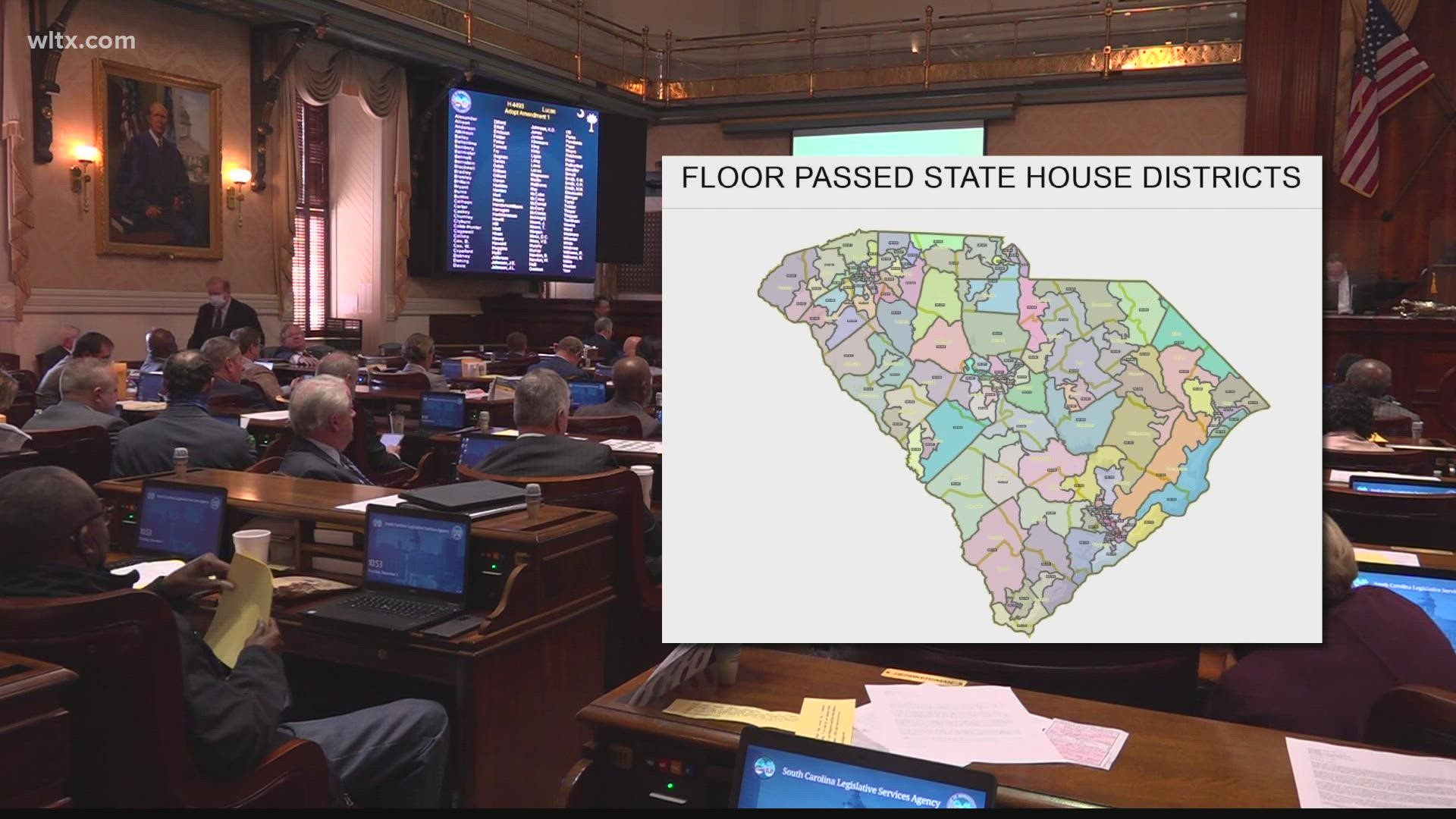COLUMBIA, S.C. — South Carolina has reached a settlement with the American Civil Liberties Union regarding new voting districts in the state.
After the ACLU sued the state’s House of Representatives for discriminating against Black voters, the House has agreed to go back to the drawing board.
The House passed its new district map in December 2021. Not long after, the ACLU sued South Carolina, saying the map, “discriminated against Black communities in the state and denied Black voters equal opportunity to participate in the political process and elect candidates of their choice."
Now they’ve reached an agreement to redraw the lines of 29 state House districts, many of them are in the Midlands.
Lynn Teague with the League of Women Voters is not involved in the settlement but has closely followed the redistricting process in South Carolina. She told News19 that the settlement has, "ensured better representation for minorities in some areas."
Lawmakers in charge of redistricting, like Representative Jay Jordan, have repeatedly defended the map they drew. News19 reached out to Jordan about the settlement but did not hear back. Here’s what he had to say about backlash on the district lines in December:
In December, Jordan responded to backlash on the district lines by telling News19, “the committee went to great lengths to follow the law, and follow the population, and we the drew lines in a way that drew toward the population growth.”
The settlement is a compromise and states that House defendants are not admitting to any wrongdoing.
Teague explained that the House map forced several Democrats to go against each other, in turn losing a Democratic seat. This is called double bunking. The new settlement map will prevent that.
Teague gave the example of Representative Jermain Johnson and Representative Wendy Brawley's districts absorbing into one under the House map. "Those two incumbents are double bunked," Teague said about the Democrats. "In the settlement map, they would no longer be double bunked. They will be separate in separate districts.”
These proposed districts under the settlement will still need to be approved by lawmakers and the Governor. The settlement says House defendants will vote on the lines “as soon as practicable” and the Governor will have until May 17 to sign the new map into law. Once that happens, they will go into effect for the 2024 election, meaning this year’s election will be under the current controversial map.
RELATED: Proposed bill in SC would make convicted drunk drivers pay child support to victims' families
"So, they will have to still go against each other this year. And then it's up to whichever one loses to decide whether they're going to run again in 2024," Teague explained about Johnson and Brawley. "But one way or the other, we will see in that instance for example, assurance of a better representation of the lower Richland minority community than we would have with the House map as originally drawn,” said Teague.
To help prevent this issue in the future, the ACLU is calling for a more independent and transparent redistricting process.
Meanwhile, there is still a legal challenge to the map drawn for U.S. Congressional districts.

